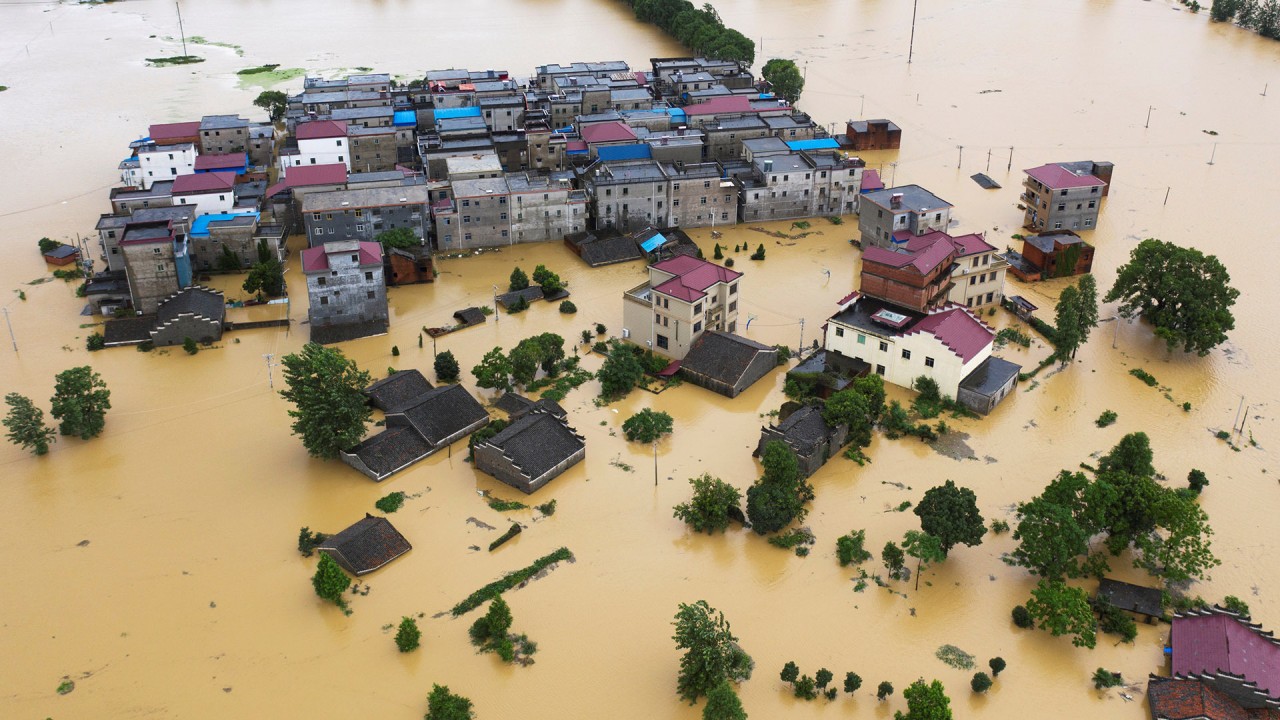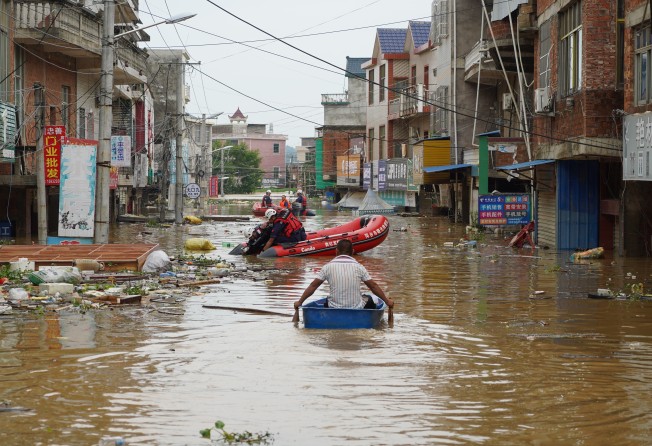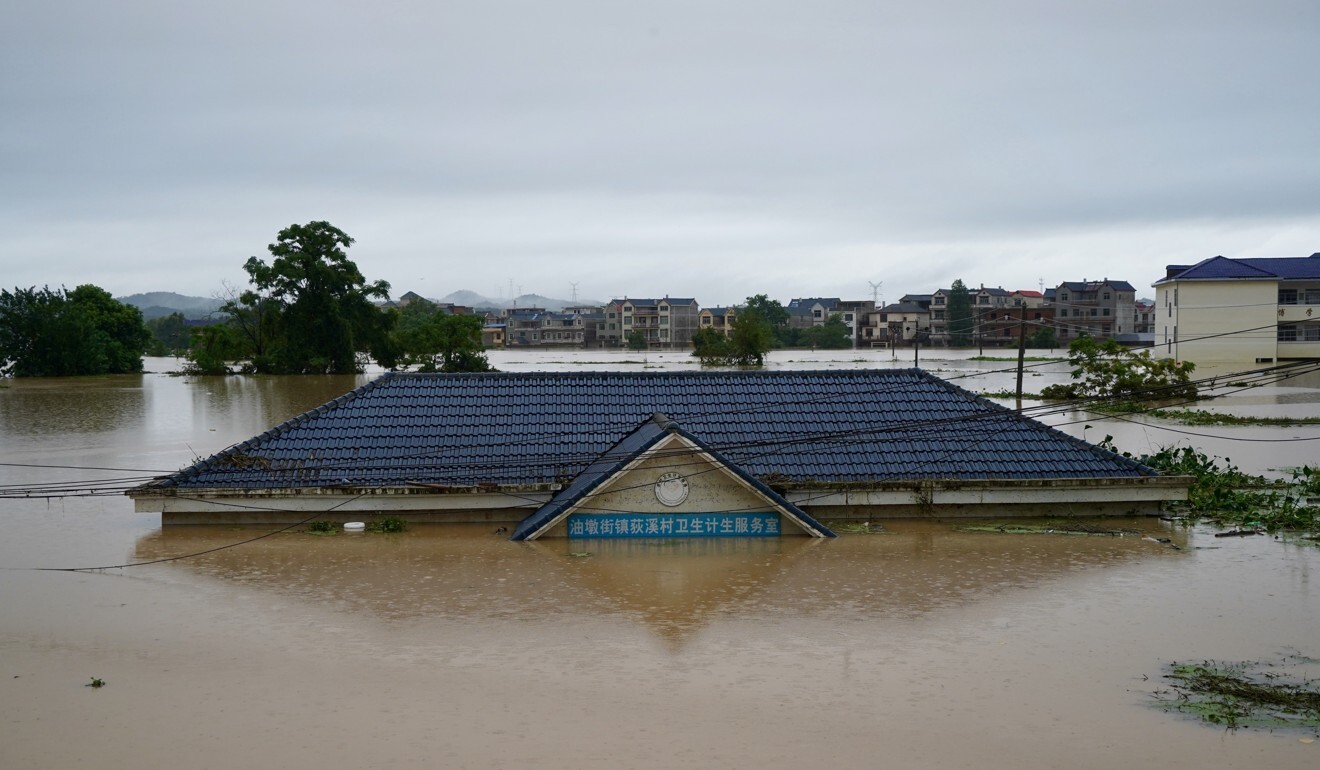
03:18
China’s massive floods move east, battering communities along Yangtze River

Saturday was another sleepless night for Wu Shengsong.
It was his fifth in a row on patrol duty on the banks of the Xi River in Poyang county, Shangrao, east China’s Jiangxi province.
Soon after he started his shift, lightning lit up the sky and thunder rolled in the distance. Wu stood silent and still, fearful of the storm gathering above his head and the stability of the ground beneath his feet.
“I’m a little worried,” he said. “The forecast is for several days of rain.”
Wu works as an official in the village of Wanli, close to Poyang Lake, China’s largest freshwater lake. By Sunday morning, after a heavy downpour and a release of floodwater from the Yangtze River upstream, its water level had risen to an all-time high of more than 22.5 metres (74 feet), putting many of the towns and villages that lie beyond the dyke that surrounds it at risk.

03:18
China’s massive floods move east, battering communities along Yangtze River
Wanli is just one of many villages that have been hit by China’s latest floods, which have spread to 27 of 31 mainland provinces. According to official figures, as of Saturday, almost 34 million people had been affected and at least 140 reported dead or missing.
The situation is particularly severe along the Yangtze. According to state news agency Xinhua, there are 2,545km (1,580 miles) of dykes in Jiangxi and 2,242km of them are facing an “extremely grim situation” with regards to flood control.
Many of the dykes are monitored by residents, like Wu.

On Wednesday, floodwater breached the riverbank across from Wu’s dyke, flooding several low-lying villages and leaving 20,000 people without electricity or fresh water.
Wu said he received orders from his supervisors on Tuesday to arrange for patrols, as the floodwater headed in their direction. He and other villagers took turns patrolling the area, each monitoring a few hundred metres of riverbank.
Wu uses a flashlight to check for possible problems and signs of breaches. At one point he stopped to look at a pipeline that ran through the riverbank to a fish pond on the other side.
“We plugged that hole with sandbags, but we need to check they are intact,” he said.
The watchers spend most of the night on patrol, taking only short breaks. If they see a breach or a puddle of water, they report to their supervisors who arrange for a team to plug the gap.
No one dares to take any chances.
“If there’s even one slip-up, it will be quite dangerous. When the water comes, it’s only a matter of minutes,” Wu said.
The villagers remember when the water came on Wednesday. Huang Diqun, another watcher, had been standing on a bridge when the bank on the other side broke.
“I saw the water hit against the bank, with a cracking sound, then suddenly it fell,” he said.
Homes fell into the water, one after another, as terrified villagers ran across the bridge or climbed onto their rooftops for safety.
All of Wu’s rice fields flooded. He said that if the water subsided quickly he might be able to save some of his crop, but thought the floods were likely to last for another two or three months.
Along the Yangtze, many lakes and tributaries are still rising and the water has nowhere to go.
He can only try to prevent another breach from happening and pray for the best.
“All we can do is watch,” he said.